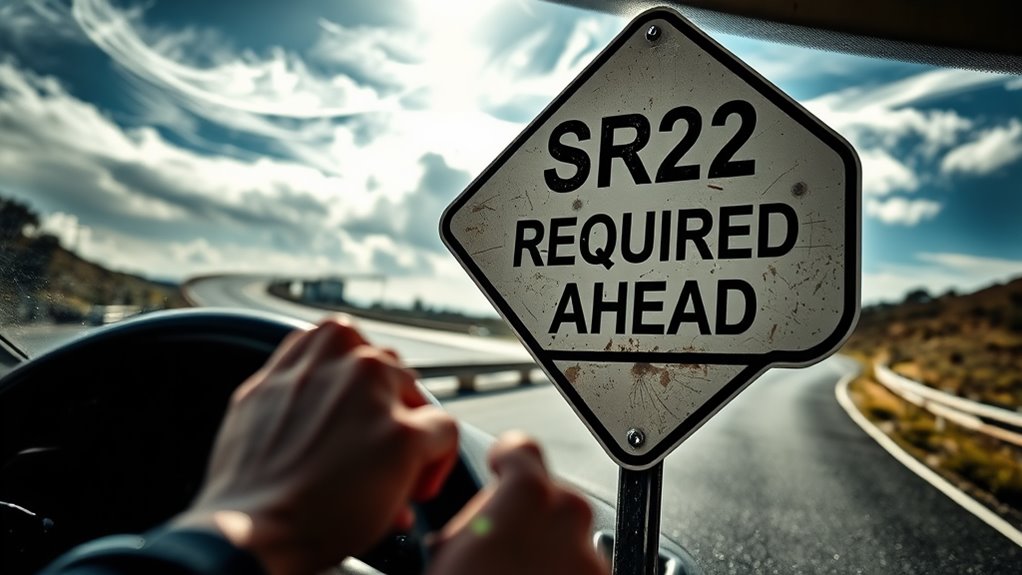Why Is SR22 Insurance Required for So Long?
When you face serious traffic violations like DUI or reckless driving, SR22 insurance becomes a necessary part of your journey. It's not just a formality; the extended duration—often one to five years—reflects the state's commitment to ensuring you adopt safer driving habits. This requirement serves as a reminder of past mistakes and promotes accountability. But why such a lengthy period? Understanding the implications and benefits of this insurance can shed light on its critical role in your driving future.
When you find yourself labeled as a high-risk driver, understanding SR22 insurance requirements becomes vital. You may wonder why SR22 is required for extended periods, often ranging from one to five years depending on your situation. This form isn't an insurance policy itself; it's a document that your insurance provider files with the state to prove you have the minimum required auto liability coverage. The duration of this requirement stems from the state's emphasis on guaranteeing drivers like you maintain continuous insurance after certain offenses.
SR22 is most commonly mandated after serious traffic violations, including driving under the influence (DUI), multiple reckless driving incidents, or accidents where you lacked insurance coverage. It serves as a mechanism for reinstating your driving privileges following such infractions. Your state's specific guidelines dictate how long you must carry SR22 insurance, and these can vary considerably. For instance, if you live in Texas, your minimum coverage might be 30/60/25, while other states have their unique requirements. Additionally, many states have implemented strict regulations to ensure compliance with SR22 insurance requirements.
SR22 is essential for regaining driving privileges after serious violations, with state-specific coverage requirements varying significantly.
One reason the duration is lengthy is that it reflects the severity of your driving record. If you've committed multiple infractions or particularly dangerous driving behaviors, the state wants to confirm you've learned from your mistakes. They impose a longer SR22 requirement as a way to monitor your driving habits and guarantee you maintain continuous insurance coverage. This oversight helps reduce the chances of repeat offenses, thereby improving road safety for everyone.
Costs associated with SR22 can also contribute to its long duration. Filing fees typically range from $25 to $50, but high-risk drivers often face higher insurance premiums. If your insurer notifies the state of a lapse in your SR22 coverage, you could experience immediate repercussions, including a further suspension of your license. Therefore, the state requires you to keep that coverage active for a specified duration to avoid any penalty.
Another notable aspect is that some states may require additional coverages as part of the SR22 filing, which can further extend the length of time you need to hold this document. Additionally, if you don't own a vehicle, you can still obtain a non-owner SR22 policy, which reinforces the necessity of maintaining a record of financial responsibility.
Once the SR22 period expires without further violations, the requirement is lifted. However, it's important to understand that the road to reinstatement isn't merely about fulfilling the SR22 obligation. It's about demonstrating that you can be a responsible driver. Compliance with SR22 requirements helps confirm that you won't face further driving restrictions or legal complications, allowing you to regain full driving privileges.
Conclusion
In summary, SR22 insurance isn't just a formality; it's an essential lifeline for high-risk drivers to prove they've learned from their past mistakes. Why should you be monitored for so long? Because your driving habits impact not only your safety but the well-being of others on the road. Embracing this extended requirement can transform your driving journey, fostering a culture of responsibility and ultimately leading to safer streets for everyone. Your commitment today can reshape your tomorrow.
